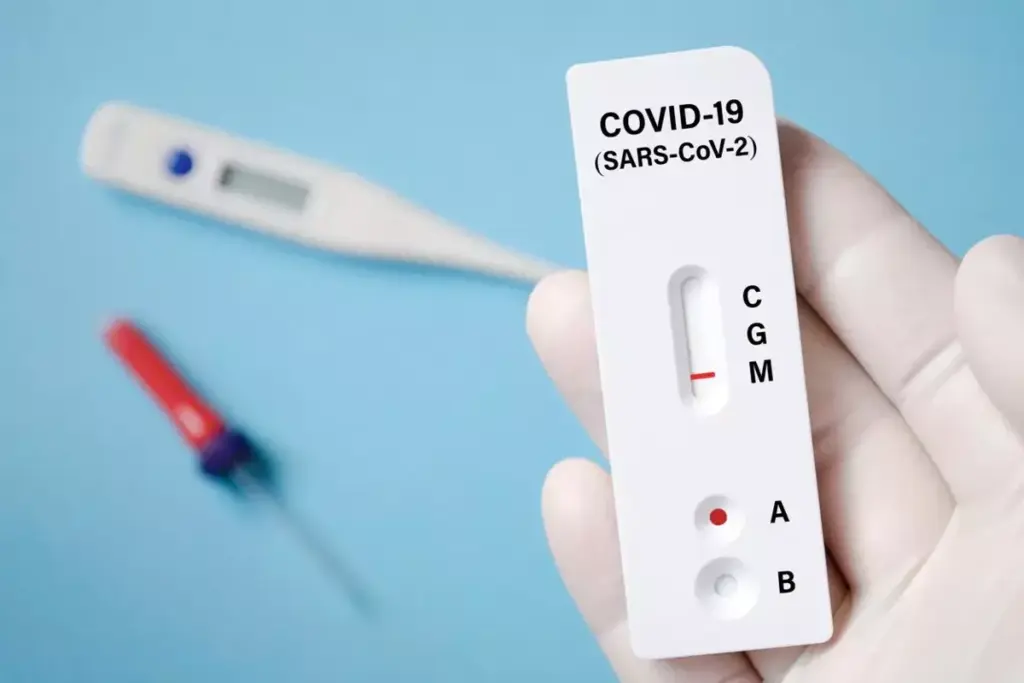
At Liv Hospital, we explore the nutritional profile and health benefits of bone marrow fat. This food is rich in healthy fats, collagen, and key nutrients. It’s a great addition to a balanced diet because it offers monounsaturated fats and anti-inflammatory omega-3s.
Research shows that bone marrow fat supports overall wellness. It helps with joint pain relief, boosts the immune system, and improves energy. Its rich nutritional profile makes it a standout food with great health benefits.
Key Takeaways
- Rich in healthy fats, collagen, and key nutrients like iron and vitamin B12
- Delivers monounsaturated fats and anti-inflammatory omega-3s
- Supports joint pain relief and immune function
- May improve energy levels and overall wellness
- A valuable addition to a balanced diet when consumed in moderation
What Is Bone Marrow and Why It Matters

Bone marrow is a spongy tissue inside our bones. It’s key for many bodily functions. It helps make blood cells and stores fat.
The Structure and Function of Bone Marrow
Bone marrow is found in bone cavities. It has blood vessels like capillaries and sinusoids. This makes it very vascular.
Its main jobs are making blood cells and storing fat. It creates red and white blood cells and platelets. These are vital for carrying oxygen, fighting infections, and clotting blood.
Types of Bone Marrow: Red vs. Yellow
There are two types: red and yellow bone marrow. Red marrow makes blood cells. Yellow marrow is mostly fat, acting as an energy reserve.
In babies, most marrow is red. As we grow, more becomes yellow. Adults have more yellow marrow, but red marrow is found in the pelvis, vertebrae, and sternum.
| Characteristics | Red Bone Marrow | Yellow Bone Marrow |
|---|---|---|
| Primary Function | Hematopoiesis (production of blood cells) | Energy storage (fat) |
| Location in Adults | Pelvis, vertebrae, sternum, and ends of long bones | Mainly in the shaft of long bones |
| Composition | High concentration of hematopoietic cells | Primarily adipose (fat) tissue |
In summary, bone marrow is essential for our health. It makes blood cells and stores energy. Knowing about its structure, function, and types helps us understand its importance.
The Nutritional Profile of Bone Marrow

Understanding bone marrow’s nutritional components is key to its health benefits. It’s packed with essential nutrients, making it great for a balanced diet.
Macronutrients in Bone Marrow
Bone marrow is rich in healthy fats. These fats include monounsaturated and saturated fats. They help with energy and absorbing vitamins.
It also has a lot of protein. This protein is vital for fixing and growing tissues. It’s full of collagen, which is good for skin, hair, and joints.
Essential Vitamins and Minerals
Bone marrow is a top source of vitamin B12. It’s key for energy, nerve health, and making red blood cells. It’s also full of iron, which keeps red blood cells healthy and prevents anemia.
Other important minerals are zinc and phosphorus. Zinc boosts the immune system, and phosphorus is good for bones.
Bioactive Compounds and Their Functions
Bone marrow has bioactive compounds like glycosaminoglycans (GAGs) and conjugated linoleic acid (CLA). These have anti-inflammatory effects and help with joint health.
These compounds boost bone marrow’s nutritional value. They make it a healthy food that supports overall health and well-being.
Is Bone Marrow Fat Healthy or Harmful?
Bone marrow fat is made up of different fats, each with its own health impact. To figure out if it’s good or bad, we must look at what it’s made of and how it affects our health.
Types of Fats in Bone Marrow
Bone marrow has both saturated and unsaturated fats. The unsaturated fats include monounsaturated and polyunsaturated fats, like omega-3 fatty acids. The healthy fats in bone marrow could be good for us.
- Monounsaturated fats: These fats are good for the heart and are found in the Mediterranean diet.
- Omega-3 fatty acids: These fats help reduce inflammation and are good for the brain.
Monounsaturated Fats and Omega-3 Content
The monounsaturated fats in bone marrow are mostly oleic acid. It’s known for its anti-inflammatory effects and heart health benefits. The omega-3 in bone marrow also helps reduce inflammation.
Studies show that a balanced mix of fats is key. Bone marrow’s unique fat mix might be good for our health.
Anti-inflammatory Properties of Bone Marrow Fat
The anti-inflammatory effects of bone marrow fat come from its monounsaturated fats and omega-3s. These fats help fight inflammation, which is linked to many chronic diseases.
“The anti-inflammatory effects of certain fatty acids found in bone marrow can play a key role in managing chronic inflammation.”
Eating bone marrow might help us fight inflammation. This could lead to better health and well-being.
The Collagen Powerhouse: How Bone Marrow Supports Skin and Joint Health
Bone marrow is a key player in keeping our skin and joints healthy. It’s packed with collagen, a protein that helps our skin, bones, and connective tissue stay strong. This protein is essential for keeping our skin elastic and our joints moving smoothly.
Types of Collagen Found in Bone Marrow
Bone marrow has different types of collagen, with Type I and Type II being the most important. Type I collagen is great for our skin, giving it strength and flexibility. Type II collagen is mainly in cartilage, helping our joints stay healthy. This makes bone marrow a top choice for boosting skin and joint health.
Collagen’s Role in Tissue Repair and Regeneration
Collagen in bone marrow does more than just hold things together. It’s also key in fixing and growing new tissues. When we eat it, our body breaks it down into amino acids. These amino acids help repair and grow tissues, keeping our skin and joints healthy as we get older.
Studies have found that eating foods rich in collagen can make our skin more hydrated and elastic. It can also help reduce joint pain and improve how well we can move. For example, a study on collagen supplements showed they could help with joint pain and function. You can learn more about collagen and stem cells in regrowing knee cartilage by visiting this resource.
Bone Marrow vs. Other Collagen Sources
Bone marrow is special because it’s not just full of collagen. It also has proteins, vitamins, and minerals that work together to support our health. Unlike some collagen supplements that only have isolated peptides, bone marrow offers a complete package of nutrients.
In short, bone marrow is a powerhouse for skin and joint health because of its collagen. Adding bone marrow to your diet can help improve your skin’s elasticity, reduce joint pain, and support overall tissue health.
Iron and B12: How Bone Marrow Supports Blood Health and Energy
Bone marrow is key for blood health, thanks to its iron and vitamin B12. These nutrients are vital for healthy blood cells and energy.
Iron Content in Bone Marrow
Iron in bone marrow is essential for making hemoglobin. Hemoglobin carries oxygen in red blood cells. Without enough iron, you might feel tired, weak, and short of breath.
Key benefits of iron in bone marrow include:
- Supporting the production of healthy red blood cells
- Enhancing oxygen delivery to tissues and organs
- Reducing the risk of iron deficiency anemia
Vitamin B12 and Its Role in Energy Production
Vitamin B12 in bone marrow is vital for energy. It helps make ATP, the energy for cells. Without enough B12, you might feel tired, weak, and have nerve problems.
| Role of Vitamin B12 | Impact on Energy Production |
|---|---|
| ATP Production | Essential for cellular energy |
| Nervous System Function | Supports nerve health and function |
| Red Blood Cell Formation | Prevents anemia and fatigue |
How Bone Marrow Nutrients Combat Fatigue
Fatigue can come from many things, including not getting enough nutrients. Iron and B12 in bone marrow help fight fatigue by making healthy red blood cells and helping with energy.
By eating bone marrow, you might feel less tired and have more energy.
7 Evidence-Based Health Benefits of Consuming Bone Marrow
Bone marrow is good for your health, helping with joint pain, bone strength, and immune function. It’s important to know the science behind these benefits.
1. Joint Pain Reduction and Mobility Support
Bone marrow has compounds like glucosamine and chondroitin that are good for joints. These help reduce pain and improve how well you can move.
Key Components for Joint Health:
- Glucosamine
- Chondroitin
- Collagen
2. Enhanced Bone Strength and Density
Bone marrow has nutrients like calcium, magnesium, and phosphorus. These help make bones stronger and denser. This is good for people at risk of osteoporosis.
| Nutrient | Role in Bone Health |
|---|---|
| Calcium | Essential for bone mineralization |
| Magnesium | Supports bone mineral density |
| Phosphorus | Critical for bone formation |
3. Immune System Fortification
Bone marrow is full of immune cells and factors. Eating bone marrow can boost your immune system.
4. Improved Energy Production
The iron and vitamin B12 in bone marrow are key for energy. They help fight fatigue and boost your energy levels.
Key Nutrients for Energy:
- Iron
- Vitamin B12
Eating bone marrow can bring these health benefits to you. Always talk to a doctor before making any big changes to your diet.
How to Eat Bone Marrow: Preparation Methods and Culinary Uses
Bone marrow is packed with nutrients and can be used in many dishes. We’ll look at how to add it to your meals, from old ways to new cooking methods.
Traditional Bone Marrow Dishes
In many cultures, bone marrow is a key food because it’s full of nutrients. A common way to enjoy it is by roasting the bones to get the marrow. This marrow can then be spread on bread or used as a topping. Roasted bone marrow is not just tasty but also very nutritious.
Bone Broth and Its Applications
Bone broth is made by simmering bones in water. It’s full of nutrients and can be used as a base for soups or eaten alone. The long cooking time pulls out minerals and collagen from the bones, making bone broth a healthy drink. We can add bone broth to many recipes to boost flavor and nutrition.
Modern Culinary Techniques for Bone Marrow
Chefs and home cooks are finding new ways to use bone marrow in cooking. It can be used as a filling in pasta or in sauces. Modern culinary techniques let us enjoy bone marrow in creative and tasty ways, making it easy to add to our meals.
Recommended Serving Sizes
It’s important to eat bone marrow in moderation. There’s no one serving size, but start with small amounts (1-2 tablespoons). Adjust based on your nutritional needs and health goals. Also, choose bones from grass-fed or pasture-raised animals for the best nutrition.
Beef Bone Marrow vs. Other Animal Sources
Beef bone marrow is special because of its nutritional benefits. The source of the marrow greatly affects its nutritional value.
Nutritional Differences Between Animal Sources
Bone marrow from animals like cows, lambs, and deer has different nutrients. Beef bone marrow, for example, is full of good fats and omega-3s. These fats help fight inflammation.
The diet and breed of the animal play a big role in the nutritional differences. Grass-fed beef, for instance, has better fats than grain-fed beef.
Key Nutritional Variations:
- Fatty Acid Profile: Changes a lot between grass-fed and grain-fed animals.
- Vitamin Content: Depends on the animal’s diet and living conditions.
- Mineral Content: Can vary based on the animal’s habitat and food.
Specific Benefits of Cow and Beef Bone Marrow
Cow and beef bone marrow are full of collagen. This is good for skin, hair, and joints. They also have conjugated linoleic acid (CLA), which helps the immune system and body shape.
The benefits of cow and beef bone marrow include:
- They help with joint health because of collagen.
- They make skin more elastic and hydrated.
- They have anti-inflammatory fats.
Sourcing Quality Bone Marrow Products
To get the most from beef bone marrow, choose high-quality products. Look for grass-fed, pasture-raised cows. They have better fats.
When looking for bone marrow products, remember:
- Choose from trusted farms or suppliers.
- Go for products with clear labels about the animal’s diet and living conditions.
- Make sure they are handled and stored right to keep nutrients.
Bone Marrow Supplements: Benefits and Effectiveness
Bone marrow supplements are popular for their health benefits. They come in different types and offer various advantages. It’s important to know how they compare to eating whole bone marrow.
Variety of Bone Marrow Supplements
These supplements come in capsules, powders, and liquids. They are made from grass-fed cows and are full of nutrients like collagen and healthy fats. It’s key to pick a supplement from a good source and with proper processing.
Some supplements help with joint health, while others boost nutrition. For example, bone marrow products give a concentrated dose of nutrients that might be missing in your diet.
Comparing Supplements to Whole Bone Marrow
Supplements are easy to use and offer bone marrow benefits. But eating whole bone marrow gives a more complete nutritional experience. Supplements are a good choice for those who can’t or don’t want to eat whole bone marrow.
The success of bone marrow supplements depends on their quality and your health. Some people see improvements in joint health or energy. Others might not notice much difference.
Dosage and Usage Guidelines
The right dose varies based on the supplement’s strength and your health goals. It’s wise to start small and increase as advised by a healthcare professional.
Always follow the manufacturer’s directions and consider the ingredients and allergens. Talking to a healthcare provider before starting any new supplement is a good idea, even more so if you have health issues.
In summary, bone marrow supplements can be beneficial for joint health, nutrition, and overall wellness. Knowing the different types and how to use them can help you make smart choices for your health.
Conclusion: Integrating Bone Marrow Into a Balanced Diet
Bone marrow is packed with health benefits when added to a balanced diet. It provides essential nutrients, supports joint health, and boosts energy. So, is eating bone marrow good for you? Yes, it is, when eaten in moderation.
To add bone marrow to your diet, try traditional dishes or modern recipes. Bone broth made with bone marrow is also a great choice. Just remember to keep portion sizes in check and balance your diet.
Choosing bone marrow wisely can bring many nutritional benefits. It’s great for joint health, energy, and exploring new foods. Adding bone marrow to your diet can be a smart move for your health.
FAQ
Is bone marrow bad for you?
No, bone marrow is not bad for you. It’s full of nutrients and can be good for your health if eaten right.
Is bone marrow fatty?
Yes, bone marrow has a lot of fat. But most of it is good fat, like monounsaturated and omega-3 fatty acids. These fats can lower inflammation and help your health.
What are the benefits of cow bone marrow?
Cow bone marrow is packed with collagen, iron, and vitamin B12. It’s great for your joints, reduces inflammation, and boosts energy.
Is it healthy to eat bone marrow?
Yes, eating bone marrow can be healthy if you do it in small amounts. It’s full of protein, healthy fats, and vitamins and minerals.
Can you eat bone marrow?
Yes, you can eat bone marrow. It can be roasted, sautéed, or used to make bone broth.
What is bone marrow good for?
Bone marrow is good for many things. It helps with joint health, bone strength, immune function, and energy. It also fights fatigue and supports skin health.
Does bone marrow have iron?
Yes, bone marrow is a great source of iron. Iron is key for healthy blood cells and energy.
Is beef bone marrow good for you?
Yes, beef bone marrow is nutritious. It’s full of collagen, iron, and other important nutrients.
What are the benefits of eating bone marrow?
Eating bone marrow has many benefits. It supports joints, reduces inflammation, boosts energy, and strengthens the immune system. It also fights fatigue and improves skin health.
Is bone marrow fat healthy?
Yes, the fat in bone marrow is mostly healthy. It includes monounsaturated and omega-3 fatty acids. These fats can lower inflammation and support health.
Is eating bone marrow good for you?
Yes, eating bone marrow can be good for you if done in moderation. It’s full of nutrients that support overall health and well-being.
Is bone marrow bad for you?
No, bone marrow is not bad for you. It’s full of nutrients and can be good for your health if eaten right.
Is bone marrow fatty?
Yes, bone marrow has a lot of fat. But most of it is good fat, like monounsaturated and omega-3 fatty acids. These fats can lower inflammation and help your health.
What are the benefits of cow bone marrow?
Cow bone marrow is packed with collagen, iron, and vitamin B12. It’s great for your joints, reduces inflammation, and boosts energy.
Is it healthy to eat bone marrow?
Yes, eating bone marrow can be healthy if you do it in small amounts. It’s full of protein, healthy fats, and vitamins and minerals.
Can you eat bone marrow?
Yes, you can eat bone marrow. It can be roasted, sautéed, or used to make bone broth.
What is bone marrow good for?
Bone marrow is good for many things. It helps with joint health, bone strength, immune function, and energy. It also fights fatigue and supports skin health.
Does bone marrow have iron?
Yes, bone marrow is a great source of iron. Iron is key for healthy blood cells and energy.
Is beef bone marrow good for you?
Yes, beef bone marrow is nutritious. It’s full of collagen, iron, and other important nutrients.
What are the benefits of eating bone marrow?
Eating bone marrow has many benefits. It supports joints, reduces inflammation, boosts energy, and strengthens the immune system. It also fights fatigue and improves skin health.
Is bone marrow fat healthy?
Yes, the fat in bone marrow is mostly healthy. It includes monounsaturated and omega-3 fatty acids. These fats can lower inflammation and support health.
Is eating bone marrow good for you?
Yes, eating bone marrow can be good for you if done in moderation. It’s full of nutrients that support overall health and well-being.
References
Healthline. Bone Marrow (Nutrition). https://www.healthline.com/nutrition/bone-marrow
WebMD. Health Benefits of Bone Marrow. https://www.webmd.com/diet/health-benefits-bone-marrow
Bare Bones Broth. Bone Marrow Benefits Wellness Guide. https://www.barebonesbroth.com/blogs/blog/bone-marrow-benefits-wellness-guide










